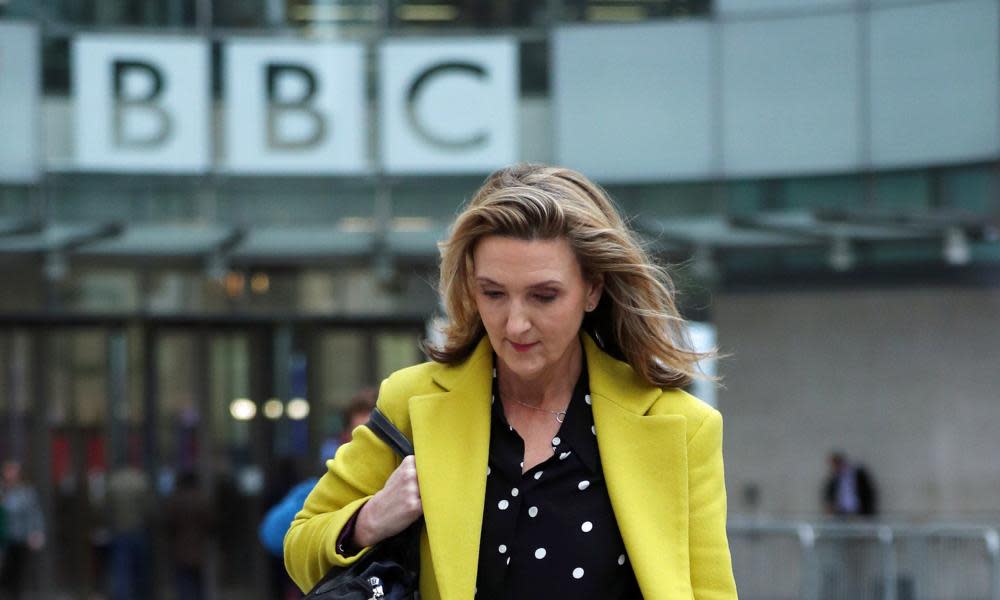The Guardian view on the licence fee: the BBC will not be the BBC without it

Victoria Derbyshire has every right to feel aggrieved. The star of her eponymous show, a much-admired BBC Two current affairs programme, learned of its demise online. It reaches parts of Britain others can only dream of – and the BBC’s legitimacy depends on doing so. To be axed in such a shabby way is hardly an advertisement for BBC management practice. Despite this, one ought not to lose sight of what led to this sorry state of affairs: the orchestrated campaign by politicians, corporate rivals and rightwing thinktanks in a war against the BBC.
The end of Ms Derbyshire’s show has been hastened by deliberate Tory policy. In 2015, George Osborne compelled the BBC to accept the roughly £500m-a-year cost of providing the over-75s with a free TV licence – loading a welfare policy on to a broadcaster. This funding deal was based not on public consultation, a published analysis of the BBC’s funding needs or the likely impact on services. Indeed, there had been no inkling that such a move might be undertaken by Mr Osborne. Perhaps his meetings beforehand with Rupert Murdoch might have helped make up the then chancellor’s mind. Mr Murdoch sees the BBC as a commercial foe, describing it wrongly as being a “massive taxpayer funded mouthpiece for tiny circulation leftist Guardian [sic]”.
The chickens of the licence fee change are coming home to roost. By March, more than 4 million pensioners will get a letter from Auntie. In it, the BBC will explain that for the first time in two decades over-75s must pay for the licence fee. The estimated 3 million of them who are not on pension credit will have to find £154.50 for a colour TV licence. The choice for some may be whether they want to put food on the table or be nourished emotionally and intellectually. Letting a group of people who may in many cases be living with some combination of disability, low income and loneliness navigate an unfamiliar bureaucracy to pay their TV licence is a recipe for chaos.
Boris Johnson is no fan of the BBC – banning ministers from appearing on its flagship morning radio news show, Today. The hostility to the BBC is shared by Mr Johnson’s chief of staff Dominic Cummings who has called the BBC a “mortal enemy” of the Tory party. One of Mr Johnson’s first acts after the election was to order a review of whether people should still be prosecuted for failing to pay the licence fee. It would be morally wrong for a government to hoodwink the over-75s, the BBC’s biggest users, with the message – amplified in friendly media – that when their free television licence ends there will be no damage to the BBC if they don’t pay up.
The BBC is the glue of the nation, bringing people together with its sports coverage and landmark dramas and documentaries. It seeks to reflect the UK’s identity and is a vital cog in the economy. It is admired globally, notes media analyst Claire Enders, for retaining Britain’s cultural sovereignty. Yet ministers wonder why the BBC shouldn’t adopt a subscription model like that of Netflix, forgetting that the latter floats on a sea of debt. The BBC might do very well under such a system, but it would not be the BBC that we know. Currently, it is a universal service, paid for by all with a licence fee meant to guarantee independence.
Mr Johnson ought to take up the sensible suggestion by peers last November of an independent and transparent process to set the level of the licence fee. BBC funding is a privilege enjoyed in return for its obligations to the nation, not a political party or a commercial interest. It must remain so.

 Yahoo News
Yahoo News 
